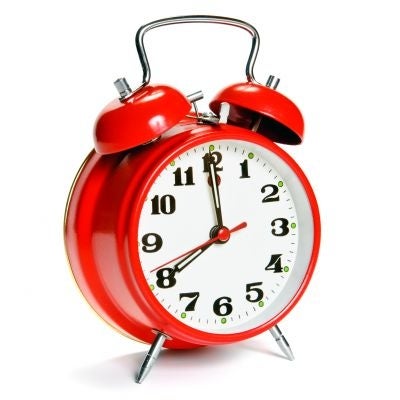Your support helps us to tell the story
From reproductive rights to climate change to Big Tech, The Independent is on the ground when the story is developing. Whether it's investigating the financials of Elon Musk's pro-Trump PAC or producing our latest documentary, 'The A Word', which shines a light on the American women fighting for reproductive rights, we know how important it is to parse out the facts from the messaging.
At such a critical moment in US history, we need reporters on the ground. Your donation allows us to keep sending journalists to speak to both sides of the story.
The Independent is trusted by Americans across the entire political spectrum. And unlike many other quality news outlets, we choose not to lock Americans out of our reporting and analysis with paywalls. We believe quality journalism should be available to everyone, paid for by those who can afford it.
Your support makes all the difference.Europe is set to "spring forward" on March 27, while North America has already set its clocks forward an hour on March 13. Experts say that losing one hour of sleep may affect your health in more ways than you'd think - and offer tips on making a smooth transition.
On March 11, health and science news website LiveScience reported on a number of health trends surrounding the first day of daylight savings time - more traffic and workplace accidents, heart attacks, and suicides - but researchers so far don't know exactly why that happens.
"It's not really understood why some of these health problems that are published coincide with the time change," said Russell Rosenberg, vice chairman of the National Sleep Foundation in the US, in an interview with LiveScience. "We don't have studies that show the time change actually causes these problems."
One problem may be that as a society, we are already sleep-deprived, so adding another hour to the deficit might push some people over the edge. "We can ill afford to lose one more hour of sleep," Rosenberg adds.
Want to make the switch and still feel rested and refreshed? WebMD advised the following tips:
- Give yourself (and your kids) a jumpstart. In the days leading up the switch, move your bedtime and wake time, little by little. For example, shave 10 minutes off every night for six nights prior to the change.
- Get some sunlight. Help reset your body's internal clock by exposing yourself to sunlight first thing in the morning.
- Avoid evening light. Since you'll be heading to bed an hour earlier than usual, keep your evenings dark with dim lighting in your house.
- Exercise a little earlier. Get in your workout before 4pm or 5pm, experts say, because exercising late in the day can keep you awake longer in the evenings.
- Try melatonin. If you decide to take melatonin, WebMD advises supplementing with the recommended dosages (about 2.5 mg) four to five hours before bedtime.
- Don't nap. Try to stay awake during the day so you can go to bed on time.
Each year around this time, many public health officials also advise that while changing your clocks you also think check your smoke detector and carbon monoxide detector batteries.
Read more: http://www.livescience.com/13183-daylight-savings-time-affect-health.html
Watch: http://www.livescience.com/13183-daylight-savings-time-affect-health.html

Join our commenting forum
Join thought-provoking conversations, follow other Independent readers and see their replies
Comments